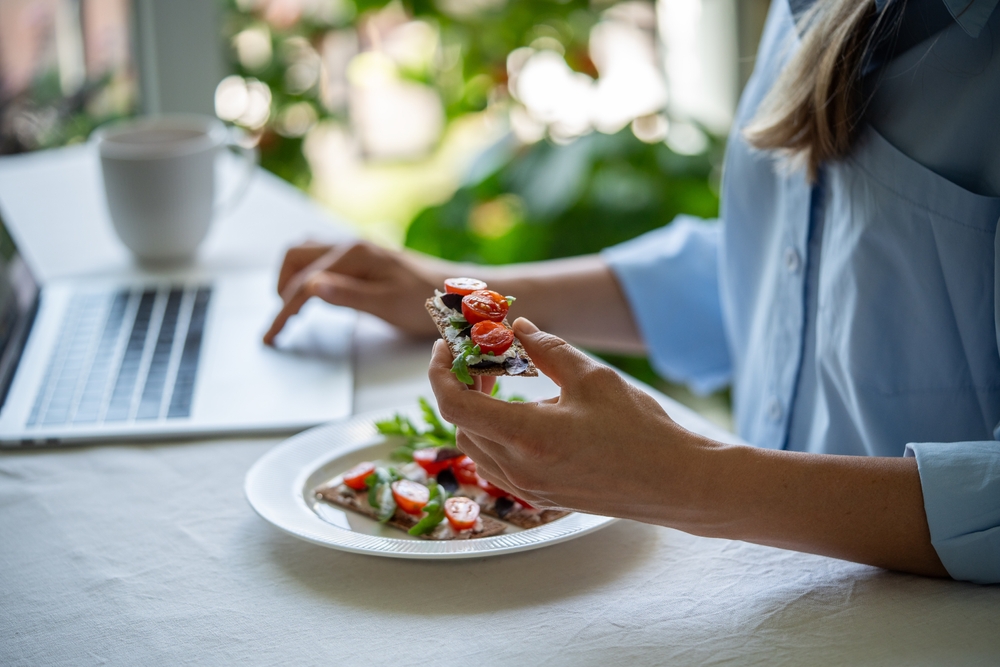Balancing energy throughout the day is not only about meals but also about the snacks in between. A well-timed snack can prevent fatigue, improve focus, and support balanced blood sugar levels. The right combination of carbohydrates, protein, and fats keeps the body fuelled and the mind alert. For those managing a busy lifestyle, small changes like choosing fibre-rich foods or pairing fruit with a protein source can make a meaningful difference. Guidance from a gut health nutritionist or a registered dietician can also help tailor snack choices to personal needs, while a sports dietician can advise on how to use snacks to optimise performance and recovery.
The Role of Blood Sugar Balance
Stable blood sugar levels are crucial for consistent energy. When blood glucose spikes after eating refined or sugary snacks, it often drops sharply, leading to fatigue and difficulty concentrating. Research by the Mayo Clinic highlights that low-glycaemic foods (those that release energy slowly) can help maintain better focus and reduce hunger later in the day. Snacks that combine complex carbohydrates with protein or healthy fats are especially effective at moderating these fluctuations.
Smart Snack Combinations
A balanced snack does not need to be complicated. Pairing foods that digest at different rates helps sustain energy for longer periods. Examples include:
- Greek yoghurt with berries and chia seeds: Offers a mix of protein, fibre, and antioxidants that support digestion and satiety.
- Wholegrain crackers with hummus: Combines complex carbohydrates and plant-based protein to stabilise blood sugar and boost energy.
- Banana with a tablespoon of nut butter: A simple combination that supports both quick and sustained energy release.
- Boiled eggs with vegetable sticks: High in protein and healthy fats, this option promotes focus without the crash associated with sugary snacks.
- Cottage cheese with sliced apple or pear: Provides calcium, protein, and fibre to maintain balanced glucose levels.
A registered dietician can help tailor snack timing and portion sizes based on individual routines, especially for people managing diabetes, weight concerns, or long workdays.
The Connection Between Gut Health and Energy
The gut plays an important role in how efficiently nutrients are absorbed and converted into energy. A diverse diet that includes fibre, fermented foods, and prebiotics supports healthy gut bacteria. These bacteria influence how carbohydrates are broken down and how blood sugar is regulated. A gut health nutritionist can help identify foods that enhance digestion and energy production while reducing symptoms like bloating or fatigue after eating. Including probiotic foods like fermented yoghurt, kefir, oats, and legumes in snacks can nurture beneficial gut microbes that contribute to overall wellbeing.
Snacks for Active Lifestyles
People who exercise regularly need snacks that sustain endurance and aid recovery. A sports dietician often recommends snacks containing both carbohydrates and protein before or after training.
For example, a smoothie made with milk, oats, banana, and peanut butter offers a balance of macronutrients for energy and muscle repair. Another practical choice is a handful of mixed nuts and dried fruit, which provides healthy fats and a moderate carbohydrate boost. Timing is also important; eating a snack 30 to 60 minutes before activity helps maintain energy during exercise.
Practical Tips for Better Snacking
- Plan ahead: Keeping healthy options like nuts, fruit, or yoghurt on hand prevents impulsive choices.
- Watch portion sizes: Even nutritious snacks can add up. A registered dietician can guide you on suitable quantities.
- Stay hydrated: Dehydration often mimics hunger and affects concentration. Pair snacks with a glass of water or herbal tea.
- Mind the balance: Aim for snacks that include protein and fibre rather than simple carbohydrates alone.
- Listen to your body: Eat when genuinely hungry rather than out of habit or boredom.
Optimise Your Nutrition with a Registered Dietician in Australia
Snacking well is about choosing foods that nourish both body and mind. Thoughtful combinations of complex carbohydrates, protein, and healthy fats help stabilise blood sugar and maintain steady energy throughout the day. With support from a gut health nutritionist, it is possible to improve digestion and overall vitality. A sports dietician can further guide active individuals in selecting snacks that align with training goals, while a registered dietician can help tailor choices for specific health conditions or dietary preferences. Small, practical adjustments can lead to more balanced energy, sharper focus, and better wellbeing each day.






